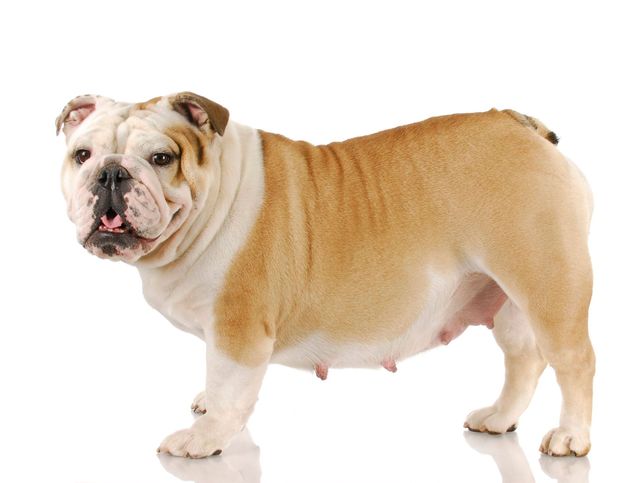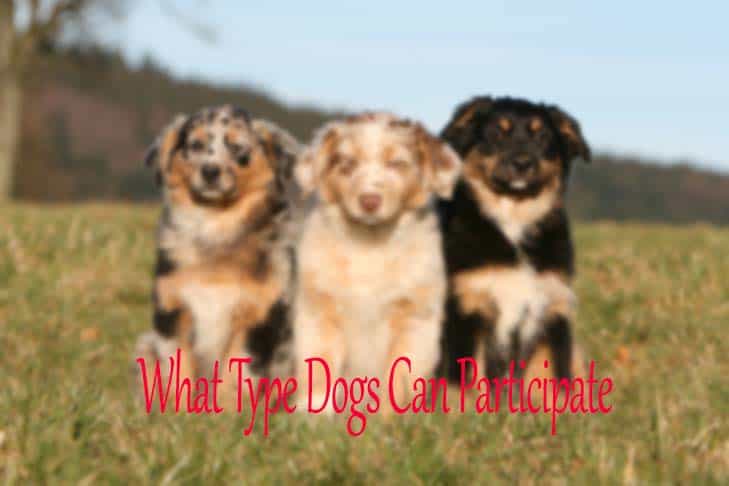As a dog owner, the anticipation of welcoming a new litter of puppies can be incredibly exciting. One common question that often arises is, “When will a pregnant dog start showing?” Understanding the telltale signs of pregnancy in dogs is essential for providing proper care and support to your furry companion during this special time. In this blog post, we will delve into the key indicators that indicate a pregnant dog is starting to show signs of pregnancy. By recognizing these signs early on, you can ensure the health and well-being of both the mother and her future pups. Let’s unravel the mystery behind when a pregnant dog will start showing.
Understanding Dog Pregnancy
When a pregnant dog will start showing signs varies depending on the size of the dog, the number of puppies, and the breed. Typically, a pregnant dog may start showing signs of pregnancy around the 21st day.
Possible Early Signs of Dog Pregnancy:
During the early stages of dog pregnancy, subtle signs may include increased appetite, tiredness, and tender breasts. As the pregnancy progresses, there may be behavioral changes as well.
Symptoms as Pregnancy progresses:
As the pregnancy advances, the dog’s belly will start to enlarge, and the dog may exhibit nesting behaviors. By the mid-pregnancy stage, the veterinarian may confirm the pregnancy through palpation or ultrasound.

Early Signs of Pregnancy in Dogs
During the early stages of pregnancy in dogs, identifying subtle signs can help you confirm the exciting news. The pregnancy of a dog typically lasts for around 63 days, but signs may start showing as early as 25-30 days post-mating.
Changes in Behavior
Dogs may exhibit behavioral changes such as increased affection towards their owners or being more lethargic than usual.
Physical Signs
Physical signs like swollen nipples and mild weight gain can be noticeable. Additionally, some dogs may experience morning sickness.
- Increase in Appetite: Some pregnant dogs may exhibit a heightened appetite.
- Changes in Nipple Color: The nipples may become darker or more prominent.
Physical Changes in a Pregnant Dog
During pregnancy, a dog undergoes various physical changes that indicate the progression of gestation. These changes typically start showing around week 4 – 6 and become more noticeable as the pregnancy advances.
1. Enlarged Abdomen
One of the most apparent signs is the enlargement of the abdomen as the developing fetuses grow. This usually becomes noticeable around week 6 – 7, and the abdomen continues to expand throughout the pregnancy.
2. Changes in Weight
A pregnant dog may gain weight gradually as the pregnancy progresses. Monitoring weight gain is crucial to ensure the health of both the mother and the puppies. A balanced diet is essential during this time.
3. Mammary Gland Development
As the pregnancy advances, the mammary glands of the dog will undergo changes in preparation for lactation. These changes may include swelling, darkening, and enlargement of the nipples.
Behavioral Changes to Look Out For
When will a pregnant dog start showing? When a dog is pregnant, there are several behavioral changes that pet owners should watch for. These changes can indicate that the dog is expecting and may need additional care and attention during this crucial time.
Increased Sleeping
Pregnant dogs may exhibit increased sleeping patterns as their bodies work hard to nurture the growing puppies.
Changes in Appetite
Pregnant dogs might experience changes in their appetite. Some may have an increased hunger, while others may show a decreased interest in food.
Restlessness
Restlessness can also be a sign of pregnancy in dogs. They may pace around more often or exhibit signs of discomfort.
Proper Care and Nutrition During Dog Pregnancy
During dog pregnancy, it is crucial to provide proper care and nutrition to ensure the health of both the mother and her puppies. Adequate nutrition plays a significant role in supporting the dog’s changing needs during this crucial period.
Balanced Diet
Feeding a balanced and high-quality diet is essential for a pregnant dog. Consult with a veterinarian to determine the best diet plan according to the dog’s size, breed, and stage of pregnancy.
Supplements
Supplements such as omega-3 fatty acids and folic acid can be beneficial for the health of the mother and developing puppies. However, always consult with a vet before adding any supplements to the diet.
Regular Vet Check-ups
Schedule regular check-ups with a veterinarian to monitor the dog’s health and ensure that the pregnancy is progressing smoothly. It also helps in identifying any potential complications early on.
Preparing for the Arrival of Puppies
As you anticipate the arrival of puppies, it’s crucial to make necessary preparations to ensure a smooth process. Create a comfortable whelping area that is warm, quiet, and secure for the mother and her future pups. Stock up on necessary supplies like clean bedding, puppy formula, and a heating pad. Consult with a veterinarian to discuss the birthing process and have emergency contact numbers handy.
Setting Up the Whelping Area
Prior to the birth, ensure the whelping box is in a secluded area to provide the mother with privacy. Line the box with clean blankets or towels that can be easily washed. Maintain a warm and draft-free environment to keep the puppies comfortable.
Creating a Birthing Kit
Put together a birthing kit containing essential items such as clean towels, a thermometer, lubricant for aiding difficult deliveries, and sterile scissors to cut the umbilical cord if needed. Have a scale on hand to monitor the puppies’ weight gain post-birth.
Monitoring the Mother’s Health
Keep a close eye on the mother’s behavior and health leading up to the birth. Watch for signs of distress or unusual symptoms that may indicate complications. Regular vet check-ups are crucial to ensure the mother’s wellbeing.
Frequently Asked Questions
-
- At what stage of pregnancy does a dog start showing signs?
- A pregnant dog typically starts showing signs of pregnancy around 3 to 4 weeks after conception.
-
- What are some common physical signs that a pregnant dog will start showing?
- Common physical signs that a pregnant dog will start showing include a swollen abdomen, changes in nipple size/color, and weight gain.
-
- When will a pregnant dog’s belly start to visibly expand?
- A pregnant dog’s belly will usually start to expand noticeably around 6 weeks into the pregnancy.
-
- Do pregnant dogs exhibit any behavioral changes when they start showing?
- Yes, pregnant dogs may exhibit behavioral changes such as increased affection, nesting behavior, and decreased energy levels.
-
- Can a vet confirm a dog’s pregnancy when they start showing signs?
- Yes, a vet can confirm a dog’s pregnancy through physical examination, ultrasound, or hormone testing when signs of pregnancy are visible.
Final Thoughts: The Timing of a Pregnant Dog Showing Signs
In conclusion, the question of “When will a pregnant dog start showing?” can vary depending on various factors such as breed, size, and individual differences. Generally, signs of pregnancy in dogs start becoming noticeable around the third or fourth week, with obvious physical changes typically appearing after the fifth week. Owners should closely monitor their dog’s behavior, appetite, and physical appearance to identify these early signs.
Remember, each dog is unique, so it’s essential to consult with a veterinarian for accurate guidance and care during this crucial time. Understanding these telltale signs and providing proper prenatal care ensures the health and well-being of both the mother and her puppies.



